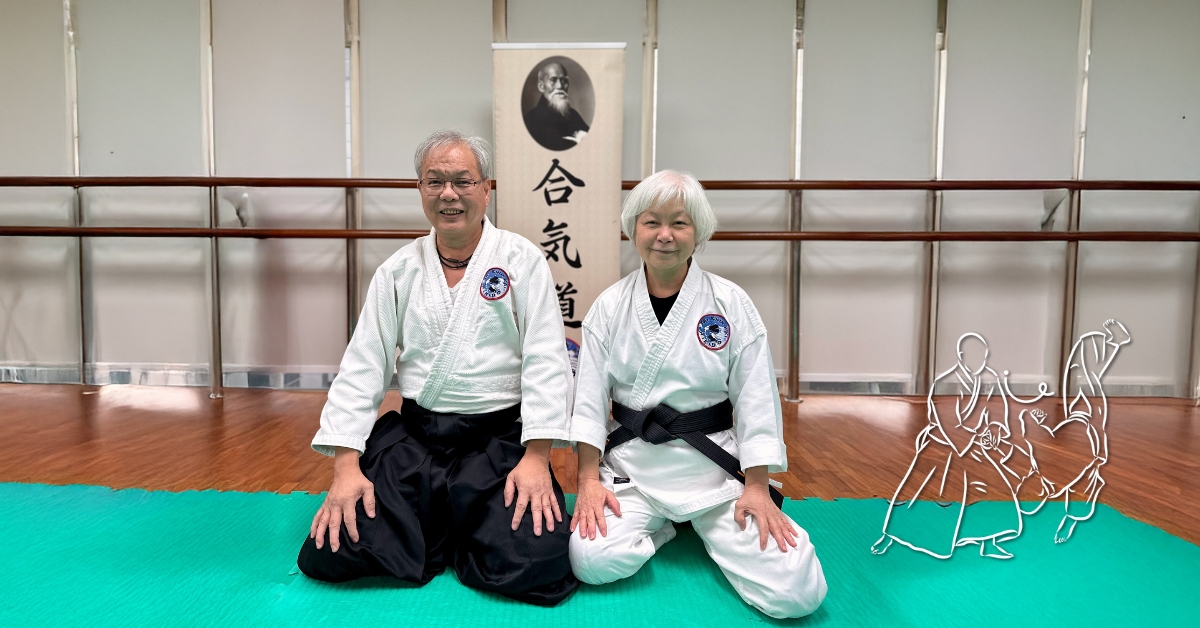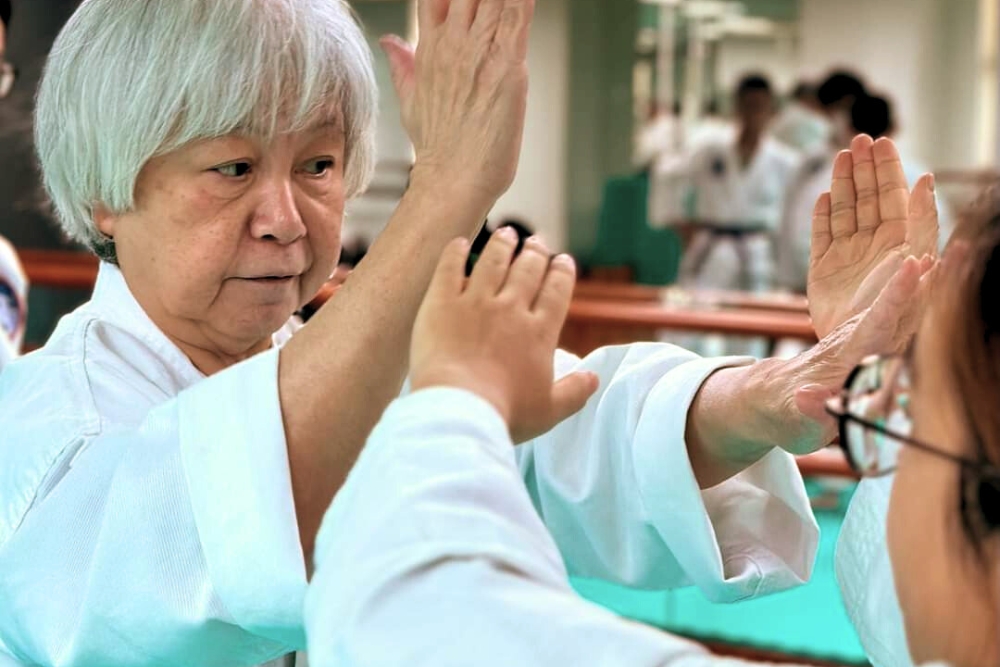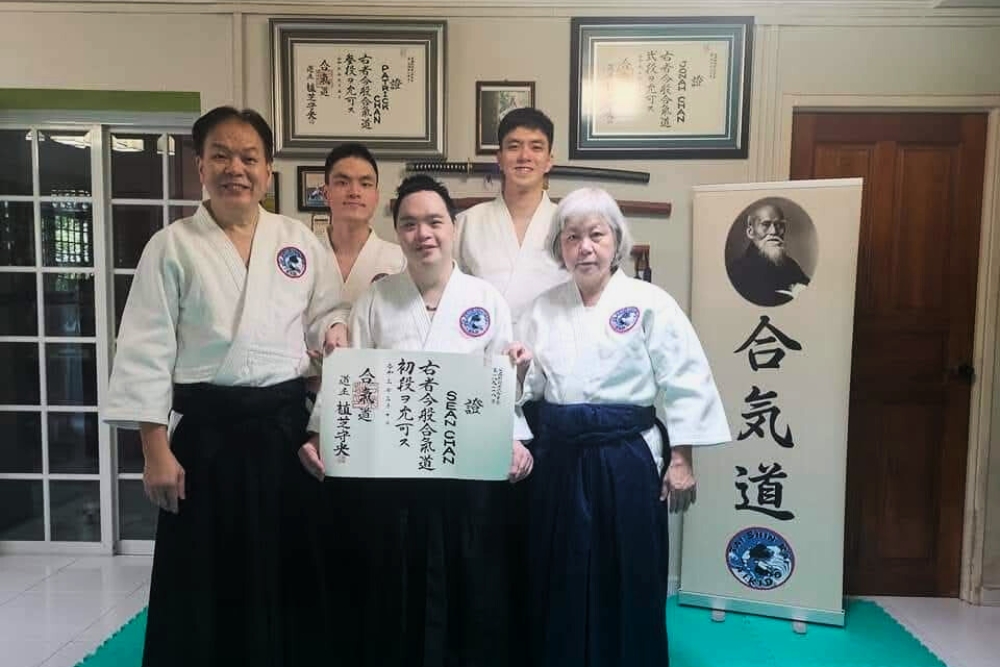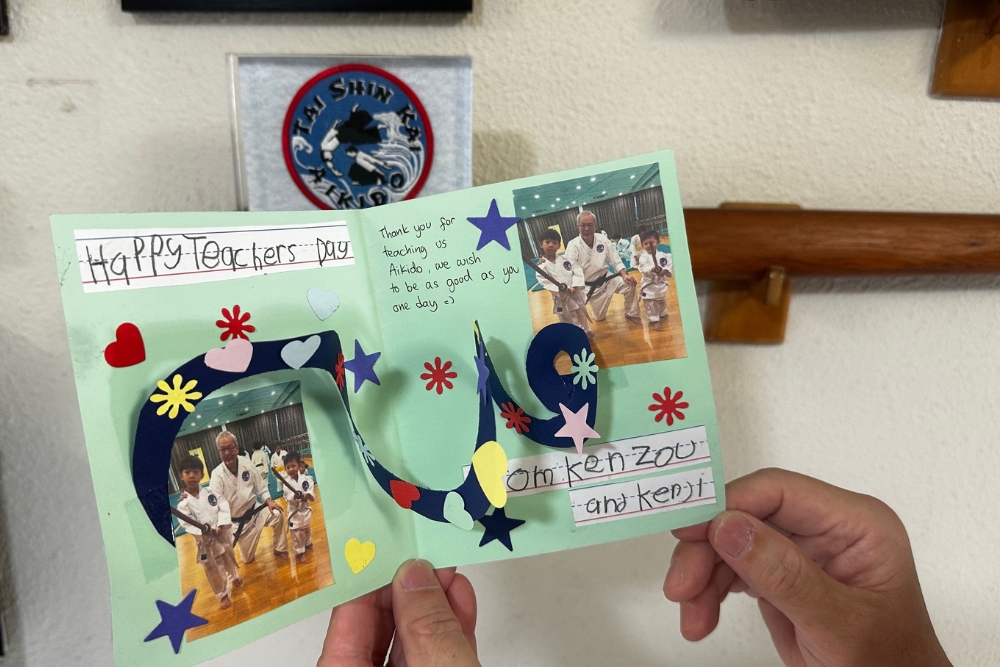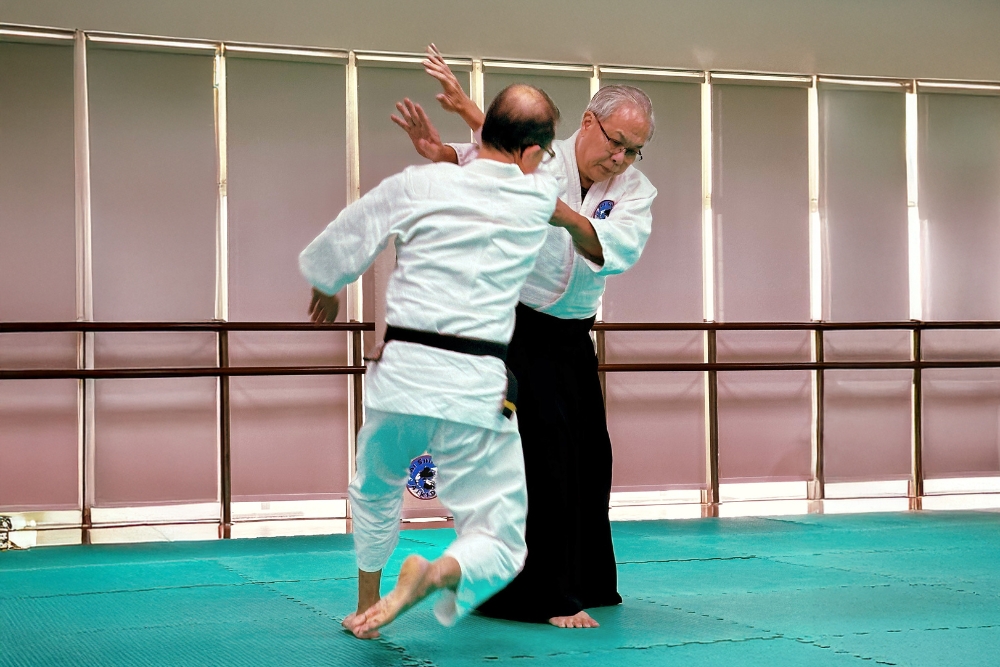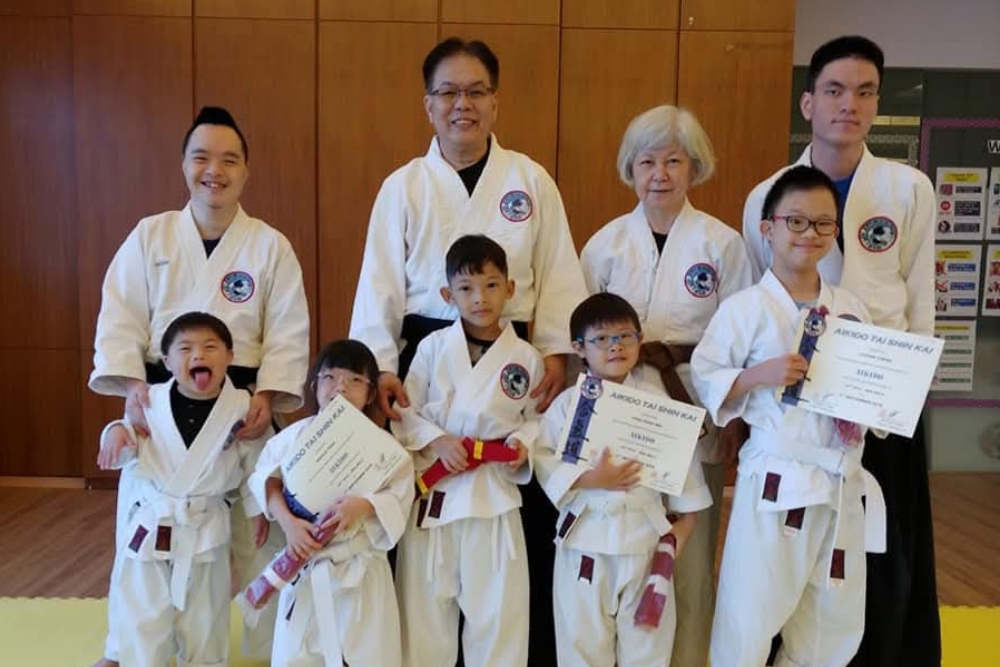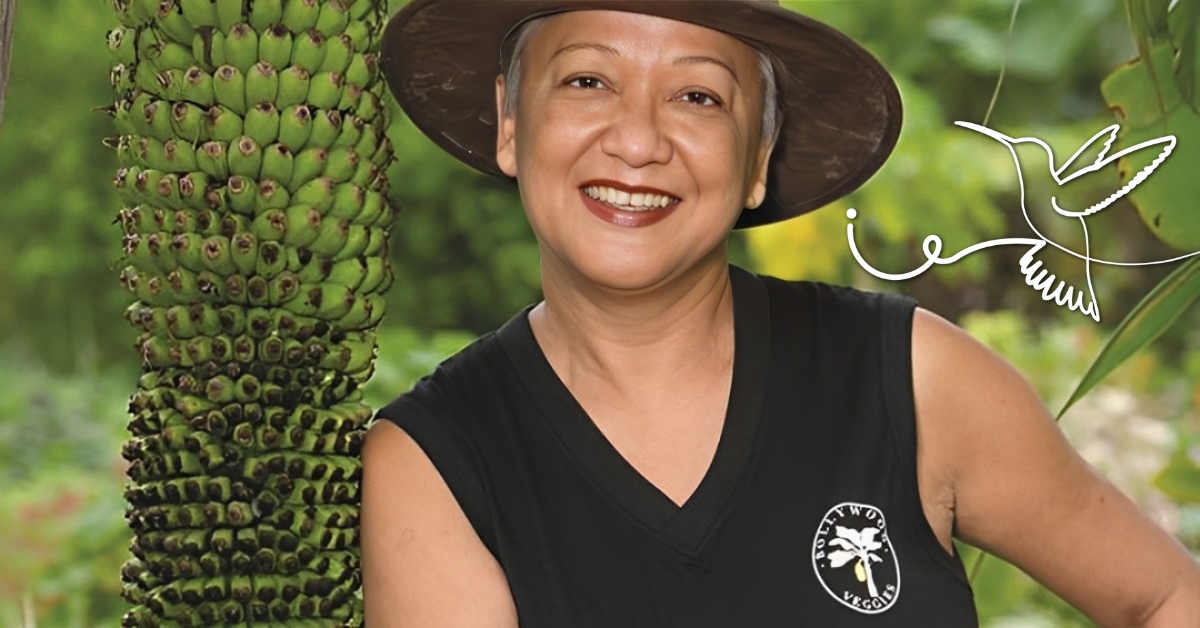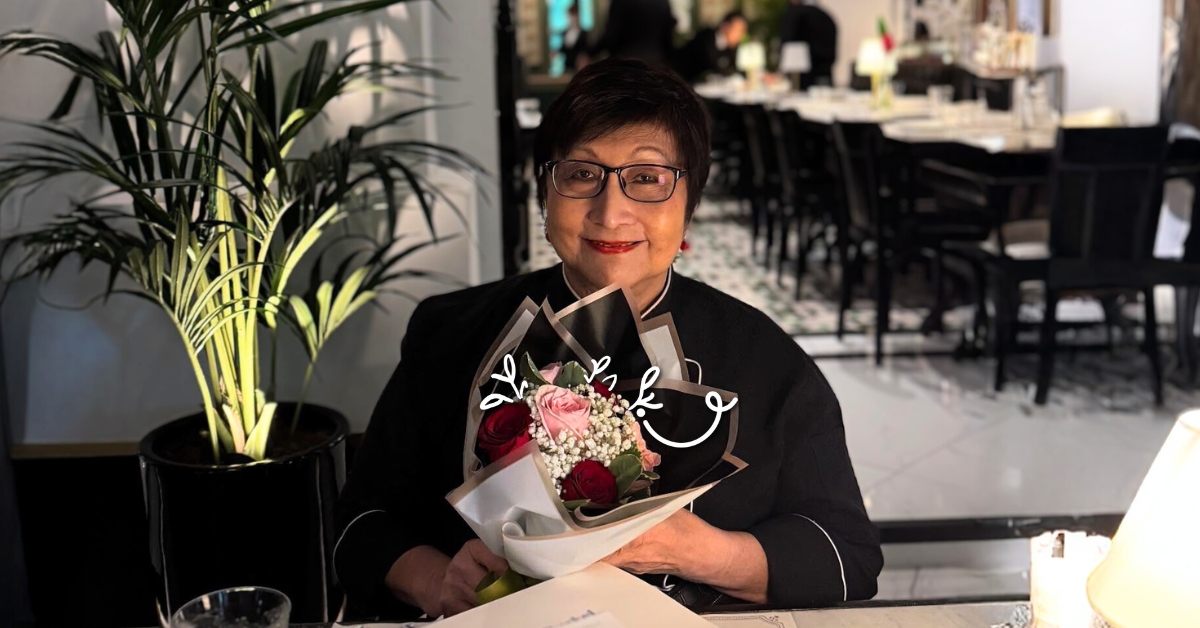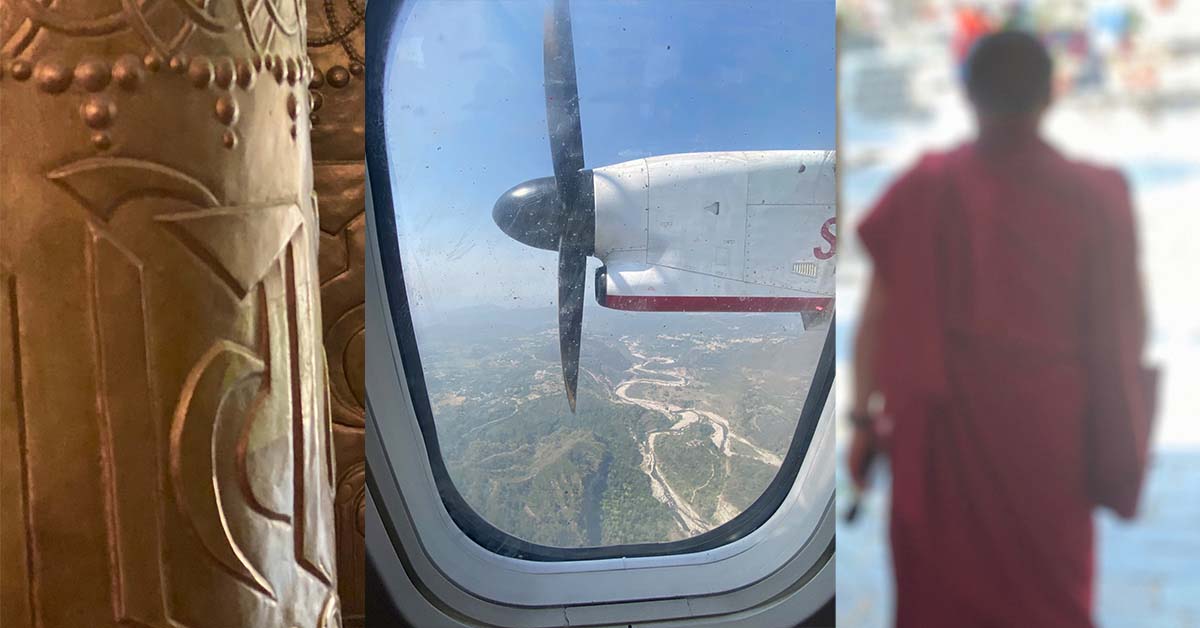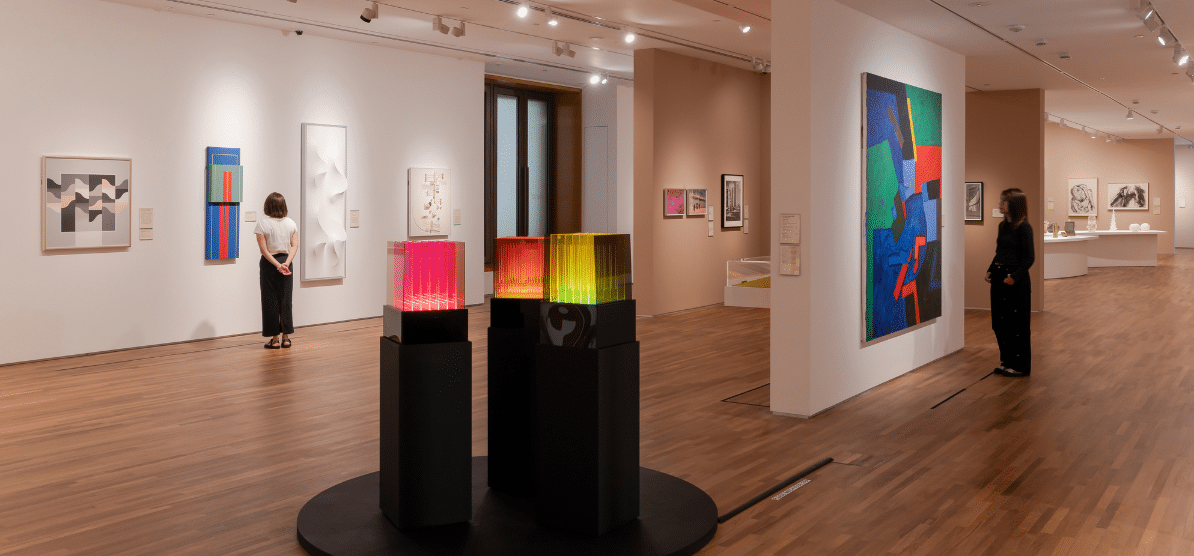Apprehending criminals was part of Patrick Chan’s job. He was a police investigator when the streets were tough in newly independent Singapore. His skill in various martial arts helped him subdue the unruly he encountered. Now a silver sensei teaching the ancient Japanese martial art of aikido, his stories of Singapore’s past liven up aikido classes for his students today.
They often train at home in their apartment in Serangoon. Lily, also a sensei at the dojo, loves to train.
Aikido, sometimes referred to as the Art of Peace, is a martial art revolving around self-defense. Joint locks and throws are the weapon of choice over fists and feet, with the majority of techniques focused on redirecting opponents’ energy rather than meeting them head-on.
Watching her expertly do body falls in the dojo today, it’s hard to imagine that she struggled to get out of a chair when she started practicing the Japanese martial art a decade ago.
She was very reluctant at first. “When my family started doing aikido,” recalls Lily, “They asked me to join, but I said no, it’s not possible. I have knee trouble, I have osteoporosis. I cannot squat. In aikido you have a lot of throwing, a lot of falling. It’s impossible! So, I went to learn tai chi. Same problem. Cannot squat. But tai chi was so much easier.”
Meanwhile, Patrick and their eldest son Shamus were driven by their passion for aikido and its concept of oneness and harmony through practice. They began to teach it.
Osteoporosis aside, and with squats no longer a problem, Lily rose through the ranks and is now a 2nd Dan black belt, one level above a basic black belt.
Second son Sean also holds 2nd Dan black belt. According to Patrick, Sean’s the only person with Down syndrome who was awarded this high rank in Singapore.
It was a great achievement, considering that Sean’s birth marked the start of turbulent times for Patrick and Lily. His condition was alien to the young couple then and the advice from their doctor was to expect a child with all kinds of health problems. They struggled to accept it and turned to religion for solace and guidance.
“Before,” recalls Lily, “I never liked Down syndrome or special needs children because I was afraid of them. When I had Sean, I was devastated. I didn’t know what to do. I was ashamed. I wanted to hide him. I thought this kind of kid was a curse. But now I see it differently. As I took care of him, I realised he is still my son. I started to have empathy for all those people who are like us, who have these kinds of kids.”
Speaking of bigger problems, there was more in store for them after coming to terms with Sean’s condition.
Jonah came next, three months premature, barely a kilogram at birth. He spent most of his first year in the hospital. He was in and out with one emergency after another for the next 10 years and had several close shaves with death.
Lily gave up her career as a draughtswoman to take care of their sons, and to homeschool them.
Enoch, who came shortly after Jonah, was another Down syndrome baby. But this was easier for Patrick and Lily to accept this time, and they received him as a blessing. However, Enoch also had a congenital heart issue. Surgery to correct that was successful, but an issue with his tracheotomy cost the child his voice.
Distracted by the numerous medical alerts in these early years with his children, Patrick gave up his police work and became a medical representative. It was a job that gave him a new understanding of his children’s medical issues, but its biggest lesson for Patrick was humility, even as he succeeded at it.
It did lead him back to martial arts though. First son Shamus was old enough to be interested in sport, so Patrick took him along. He was looking to return to the Shaolin martial arts he knew when he chanced on aikido.
What is now and the future is running Aikido Tai Shin Kai, which Patrick does with Shamus, who will be recognised for 5th Dan in Japan in April 2025. 5th Dan is high acknowledgment. Apart from just 10-15 years of training, it is prestigious validation of strong focus on teaching, leadership and technical mastery in aikido.
Oneness, through aikido, perhaps?
Oneness is also in the answer they give when the couple is asked what they enjoy today.
